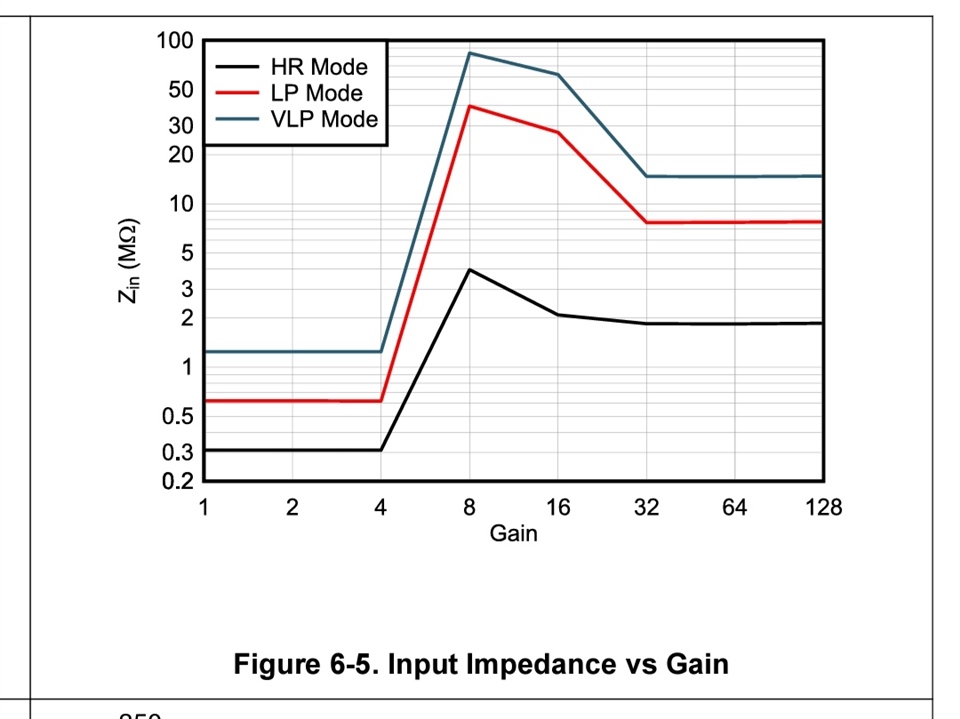Other Parts Discussed in Thread: ADS131B02-Q1, OPA2328, OPA333
Hello, im using the ADS131M02 on my design but im noticing a problem when connecting a resistive sensor. The sensor output impedance is 5kOhm and is outputting around 8.764mV. When i conncect the sensor to my ADC the value decrese to 8.710mV as if the input impedance of the ADC is too low. Im using PGA 8 and 62.5SPS. AVDD is 2.7V and common mode voltage is in range. Any ideas?


